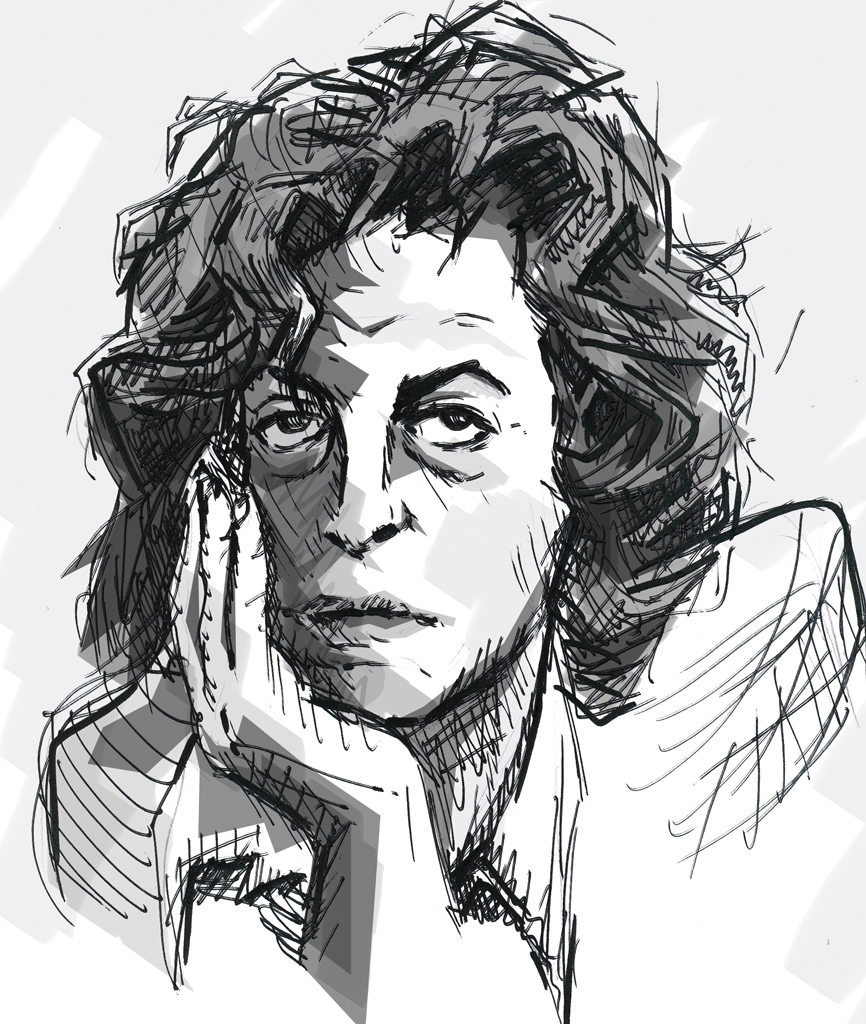There are a lot of things to protest. Take your pick: environmental degradation, wealth inequality, institutional racism, war, intolerance, hate. All the bad things, new and old. For every individual conscience, there is an individual vision of how the world should be more just.
There are a lot of ways to protest, too. They run the gamut from personal reformation to violent uprising. Picking how we protest is much more difficult than picking what we protest.
We all have a vision – fostered in good part by an unsympathetic media – of what a protest looks like. People blocking streets, loud chanting, signs, slogans, police and tear gas. Protestors being dragged away by police, police being assaulted by protestors.
Even when we admit that most protests do not swell to such confusion – that they are mostly just assemblages of people, listening to speakers – we see them as something out of the ordinary.
When we see them in person, they are jolting – an inversion of how we expected to find public space used. When we see them through the lens of the media, they are presented as a flare-up, not as a concentration of continuing grievances. An intrusion on ordinary life, not a part of it.
This is a certain kind of protest – public – which springs up eternally, in all times and places. It seldom bears fruit; it places its hope in shaming the powers of society into justice, who are usually the chief cause of injustice. The shameless will know shame – if only there are enough of us, if only our chants are succinct enough, if only our solidarity is firm enough.
If we dissever what true protest is (speaking truth to injustice) from what we are used to seeing it as (loudly and publicly speaking of injustice) it is found to already be a part of our everyday lives.
When we spend a little bit more, take a little more time, show a little more restraint, because we believe to not do so is wrong, that is a protest. Every time we make a conscious choice to do what we know is just, even though that may be unusual or unpopular – that is a silent, personal protest.
If we truly believe that we have identified an ill, we should not hesitate to change our lives so that they are free of it – “if thy right eye offend thee, pluck it out.” We will often find, in the necessary contemplation and self-examination, that we are ourselves more connected to what we despise than we had thought. It is harder to silently change than loudly chant. But our conscience demands it.
In heeding our conscience – and what, other than that, is the purpose of having consciousness – we will find a path clear before us. This is the path of protest, of differentiation form the norm. Not of calling out, but of turning away. True protest, the kind that seeks change, must be more affirmation than negation. It is focused on the actions we can ourselves take, not the actions not taken by others.
One of the best examples of this I can think of – morality lived, rejection of injustice couched in affirmation – is the Unist’ot’en camp, which is both an ongoing confrontation of injustice, and a lived alternative to that injustice.
First, some background. The camp is located in the territory of the Wet’suwet’en, in British Columbia – land which was never ceded to the crown of either the United Kingdom or Canada. Through this land, whose sovereignty was never extinguished, lies the proposed route of several pipelines which will carry petroleum products from the Oil Sands of Alberta to the ports of B.C.
The First Nations inhabitants of this land have made clear their absolute rejection of any pipelines passing through their territory, unless they can be guaranteed to pose no “irreparable environmental impacts,” as is their right. They have made clear that any plans by the federal government which calls for the pipelines passing through their territory without consent is a violation of their sovereignty.
Despite the justice of their position, however, there is no evidence that the powers that be pay them any heed. Surveyors for oil companies trespass, and must be ejected, from their lands.
The body which will approve or reject the route of these pipelines is the National Energy Board (NEB). It has been described as a “captured industry regulator” by Marc Eliesen, former CEO of BC Hydro, who resigned his part in NEB consultations in protest, and as being stacked with members of the oil industry. The most recent appointee to the NEB, Steven Kelly, is an industry consultant who authored Kinder Morgan’s economic justification for its proposed pipeline expansion. There is little reason to hope that traditional protest – the pointing out of unbearable injustice – will bear any weight in the decisions of the NEB.
The paths of the proposed Enbridge and Pacific Trail pipelines would pass through structures of the Unist’ot’en camp. As described on the camp’s website:
“The Unist’ot’en homestead is not a protest or demonstration. Our clan is occupying and using our traditional territory as it has for centuries. Our fee prior and informed consent protocol is in place at the entrance of or territory as an expression of our jurisdiction and our inherent right to both give and refuse consent. Our homestead is a peaceful expression of our connection to our territory.”
Consisting of a bunk house, healing center, and dining hall, the camp exists for purposes beyond pipeline opposition; it is a venue for living lives that, through positive affirmation of their values, are their own protest. If not the loudest form of protest, this is surely the one which has the greatest chance of success. An example to be followed is better for effecting change, than an error highlighted.
The Wet’suwet’en, though in a hard spot, are lucky. They belong to a living tradition that offers an alternative to the injustice brought upon them by the elites in our society. For many of us, we are not so fortunate. We were born, raised, and live in the same society whose wrongs we would protest. It is nothing so clear as an assault on our sovereignty that we must overcome; the enemy is, in large part, ourselves.
Whatever we can protest, it is connected to everything we do and are. If we really want to be an example of change, if we really want to reject injustice, rather than just whine about it, we have to change our lifestyles. We cannot protest – demand change – and be unchanged ourselves. Our lives, if dedicated to a thing or dedicated to the elimination of a thing, must become radical. Truly moral people, who have thought long and deeply about justice, and what a just society looks like, stand out in a crowd.
They dress differently – not because they want to attract attention, but because if you want to avoid petroleum-based synthetics, child labour, exploitative fashions, poor quality of work – you cannot wear the clothes you buy at Walmart, or the mall, or pretty much anywhere.
They eat differently – not because they are picky or think themselves too good for common fare, but because if you want to avoid meat that comes from creatures who lived dark nightmare lives of suffering, food laced with carcinogenic pesticides and herbicides, or sugar and salt in amounts our bodies simply did not evolve to handle, you cannot eat what most people eat, or buy groceries where most people buy groceries.
They spend their time differently – not because they have different likes or dislikes than others, but because spending money, watching television, shopping, and consumption are like narcotics; they are fun, and bring gratification, but come with a price: physical addiction and mental sloth.
Truly moral people stand out by what they don’t do.
If you see something wrong in the world, something you know should be different: don’t shout, don’t make signs, don’t point frantically. Draw your line in the sand; your silent rejection of crossing it will speak louder than traditional protests ever could. Be the change you want to see in the world, and the world will be changed, one person at a time.





